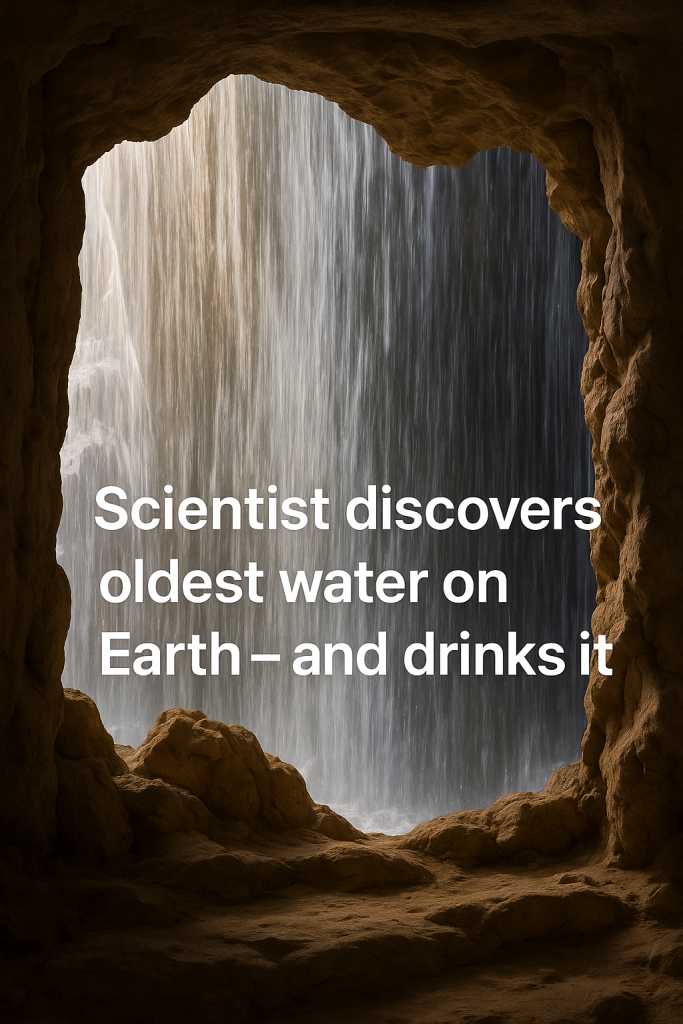In a groundbreaking discovery, a scientist has not only uncovered the oldest water ever found on Earth but has also taken the remarkable step of drinking a sample of this ancient liquid. The water, estimated to be nearly two billion years old, was trapped deep underground in a Canadian mine, preserved untouched since the Precambrian era—long before multicellular life evolved on the planet.
The discovery emerged from a team of geochemists and hydrogeologists who drilled nearly 3 kilometers beneath the surface in a remote part of Ontario. Their efforts uncovered isolated pockets of water encapsulated in rock fractures, sealed off from the surface for eons. Radiometric dating and isotope analysis confirmed the astonishing age of these subterranean reservoirs, making them the oldest water ever recovered by scientists.
What makes this find so extraordinary is not only its age but its pristine condition. Geochemists have long sought to understand Earth’s early conditions by studying ancient materials, but liquid water from two billion years ago provides a unique window into the planet’s primordial environment. The water’s chemical composition offers clues about the atmosphere, geology, and potential early microbial life forms of ancient Earth.
In one of the most striking parts of the story, the lead scientist responsible for the sampling reportedly drank a small amount of this ancient water under controlled laboratory conditions. This unprecedented act was designed to demonstrate the water’s purity and safety, and to emphasize the tangible connection between modern humans and Earth’s distant past.
“Holding and then drinking water that began its journey before complex life existed was surreal,” the scientist stated. “It’s a direct link to our planet’s early history, something usually only accessible through rock samples or fossils.”
Beyond the remarkable human interest angle, the discovery has important scientific implications. Studying such ancient water can help researchers understand ongoing geological processes and the evolution of Earth’s hydrosphere. Furthermore, the preservation of this water in isolation raises questions about subsurface ecosystems and the possibility of lengthy microbial survival — key areas of investigation in the search for life beyond Earth.
The find resonates strongly with astrobiology researchers, who often look to Earth’s oldest environments as analogs for conditions on Mars and icy moons like Europa. Understanding how water and life coexist underground on Earth for billions of years shapes our approach to finding extraterrestrial life in similarly isolated habitats.
This scientific breakthrough highlights a frontier in geological and biological exploration. The act of a scientist drinking two-billion-year-old water humanizes the story, reminding us of our deep-rooted connection to the planet’s ancient history. It also underlines the excitement and wonder that continue to propel scientific discovery forward, turning relics of the past into stories we can touch—and taste—today.



